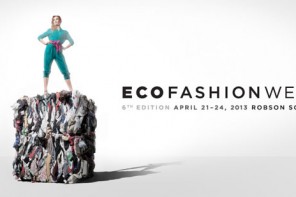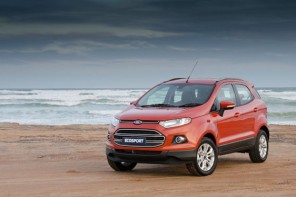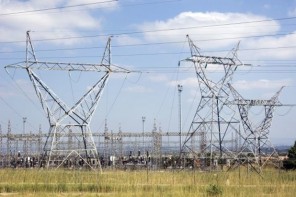It´s Super Bowl time in the U.S., during this time brands go all out with their advertising budgets. 2010 proved no different with Audi coming up with a very interesting ´green´ theme.
It’s usually pretty easy to spot a commercial for a luxury-car brand. More often than not, it will involve a mountain road with hairpin turns, dreamy shots of an all-leather interior and a growing-engine soundtrack—which is why the Super Bowl XLIV ad from Audi throws the brain into neutral. Eschewing the testosterone-laden trappings of the usual roadster spot, Audi (via Venables Bell) has instead furnished the populous with a humorous-but-Orwellian view of a world in which the “Green Police” crack down on Americans who persist in carbon-unfriendly practices. The notable exception is the gent behind the wheel of his Audi A3 TDI, with its 2.0 litre clean-diesel engine. Brandweek features editor Robert Klara spent a few minutes with Audi CMO Scott Keogh to ask him about the thinking behind the company’s Super Bowl gambit.
Brandweek: Given what most people expect from a luxury-car ad, why did you decide to make a complete departure from the usual, sleek style-and-performance content and instead focus solely on the environment?
Scott Keogh: The American audience is sophisticated, and we’re not after the same-old type of advertising. You have to break through that. Diesel technology is extremely important to Audi. If just 30 percent of Americans switched to “clean diesel,” 1.5 million barrels of oil would not need to be imported each day. We think that message is important. The general assumption is that Americans are about hybrids hybrids hybrids. But diesel is available to us today. So that’s when we said, “We have something here. We have a timely conversation going on in America.”
BW: Given the current state of the economy—high unemployment and an overall anxiety about the household budget—was your decision to go with a green message in any way influenced by a fear of using the usual flashy luxury car ad?
SK: What we’re seeing in the marketplace right now is that Americans are looking for products of substance, and we’ve historically been a brand of substance. Our badge is more understated. It’s not a frivolous, noisy brand. That’s why I think the market is coming to us in many regards. We didn’t see a need to tone down our brand because our brand isn’t a garish luxury brand.
BW: For quite a while now, we’ve been seeing evidence that American consumers are suffering from green fatigue. The usual eco-friendly pitch has grown dull and meaningless to consumers because every brand is doing it. To what degree, if any, did that reality inform the approach you took in this spot?
SK: What we saw in the research was that [consumers don’t like] the concept of being preachy—companies being perfect and holier-than-thou. That’s why, with the Super Bowl ad, we wanted to be entertaining. What you talk about is a challenge, but once you get all the entertainment out of the way, you have a green car that gets 42 miles to the gallon. Those are the facts.
BW: But what about someone who’d say that diesel fuel—efficient as it may be—is still a fossil fuel and that it doesn’t really make a lot of sense to position it as suddenly eco-friendly?
SK: I think that’s a fair statement. And I think the important thing to look at is that from Audi, and from the industry, there are going to be a lot of solutions to come. You’re going to have the combustion engine, which we currently have, to refine as far as possible. You’ll have diesel. You’ll have hybrids. And eventually, you’ll have electric. Audi is and will be launching all of these technologies. But diesel is road-ready, now.
BW: I remember watching the YouTube documentary on the marking of your Super Bowl spot last year starring Jason Statham—the one showing a supercharged Audi A6 chewing up the road. During a cast interview, one of the claims made was that Audi’s time had come to position itself as the No. 1 luxury-car brand in America. How’s that effort going now, a year later?
SK: That’s still irrefutably the long-term goal. Globally, we are on our way toward our stated goal to become the No. 1 premium auto brand by 2015. If you look at sales in Western Europe, Audi was No. 1. In China, Audi was No. 1. We’re moving in that direction in the United States, but we have to work harder to close that gap.
BW: Is the definition of luxury evolving now, given the increasing importance of the environment?
SK: The importance of the environment used to be invisible when you look at why people buy luxury. But when you look at younger audiences, it absolutely matters. [Environmental] responsibility is [becoming] a strength of the luxury segment. The old luxury messages had a lot of relevance, but they’re fading, now, to new luxury progressive messages.
BW: Is this spot, which doesn’t really show much of the stylish car except for the scene in which it pulls out of traffic, really serving to advance that message, though?
SK: You could debate whether we directly show it in the spot, but the upside of a diesel engine is that a drop of diesel has more power than a drop of gasoline. And the truth is, I don’t think you can hit too many messages at once. But on the performance end, green is a luxury message. We didn’t feel we needed to show the Corinthian leather interior.
Green Police: Audi Super Bowl Ad
Nicola
x







